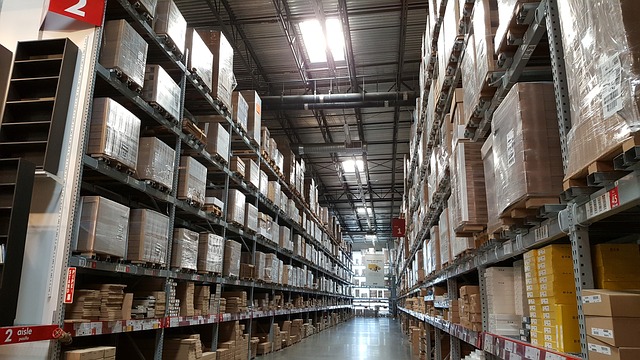Warehousing 101: Simplifying a Complicated Process
Choosing a warehouse that suits your needs can be a complicated process. Often the numerous choices available can be overwhelming. Whether you need to quickly store products or find somewhere to house them for the long term, a perfect option can be found with a bit of research.
A quick Google search reveals varied options exist across North America, and in major cities such as Toronto, Vancouver, and New York City.
Many different warehouse options are available, in a variety of locations.
What Do Warehouses Store?
Warehouses store a variety of items, ranging from household goods, such as furniture, retail apparel, fresh food products and other perishables, to dangerous goods and hazardous materials.
Warehouses are used to preserve goods from the moment they are produced until they are ready for consumption.
These goods can come in various sizes – heavy, light, big, or small.
Who Needs a Warehouse?
Many individuals and companies use warehousing and storage services for a variety of reasons.
For example, users can be importers, exporters, manufacturers, and wholesalers.
Options for storage can be long-term or short-term. For example, imported items can be housed briefly, or finished products can he held for long-term storage.
Benefits of Warehouses
Warehouses process and protect items. They often also offer services such as packing and unpacking, palletizing, and shrink-wrapping.
Apart from storage, warehouses also offer loading and unloading of containers and trailers. Specifically, they may offer cross-docking and transloading.
Cross-docking is transferring goods from one trailer to another, with no or minimal warehousing in between, while transloading consists of using various forms of transportation to move product quickly and efficiently.
While most companies offer warehousing in their building, some offer the option of a mobile unit, which can be stored on your own property or lot for added convenience.
What to Look for in A Warehouse?
The most important elements when choosing a warehouse are convenience, economical factors and safety.
Safety-wise, many warehouses offer 24-hour security, with a CCTV security system and security guards.
Many are located in areas surrounding major roads or docks, allowing users easy access.
In addition, a variety of price ranges are available.
Types of Warehouses
Many different types of warehouses exist. They differ in size and design depending on what type of products they store.
Private Warehouses – are owned by individuals to store their own goods. Owners are able to store and release their products according to market demands. Flour mills, snack companies, and beverage companies are examples of private warehouse owners.
Public Warehouses – can be owned by a dock authority or members of the public. Owners of public warehouses are considered guardians of the goods stored and charge a fee for their services. They are found on railway routes and main roads to be convenient for the transportation of goods.
Bonded Warehouses – are licensed by the government to store imported goods. Once the importer pays a customs duty, the products are released. These are often seen at seaports.
Cooperative Warehouses–exist in certain countries, such as the United States, where members of a cooperative can store their products, much more cheaply than private warehouses.
Sufferance Warehouses Vs Bonded Warehouses
One other sub-type of warehouse exists that is similar to bonded warehouses. However, unlike bonded warehouses, which store products for the long-term, sufferance warehouses are for short-term storage use only.
In Canada specifically, Canada Border Services Agency (CBSA) ensures that imported goods are legal and legitimate. Although this is usually done right away at the border, if goods are not cleared, they are moved to a licensed warehouse. In either bonded or sufferance warehouses, you can defer paying customs duty for various reasons, such as until the goods are needed.
For example, perishable goods can only be stored for 4 days, while firearms, weapons, and tobacco can be stored for 14 days. Spirits can be stored for up to 21 days. All other products can be stored for up to 40 days.
Specific Sub-Types of Warehouses
Retail Warehouses – hold and sell large amounts of retail products to consumers at lower prices than stores.
Cool and Cold Storage Warehouses – store perishables such as meat, cheese, and even pharmaceuticals in an adequately controlled temperature to prevent them from decaying or not adhering to health and safety regulations.
Different types of warehousing options exist all over North America. Depending on your needs, price range, and location, one can be found quickly and easily.

